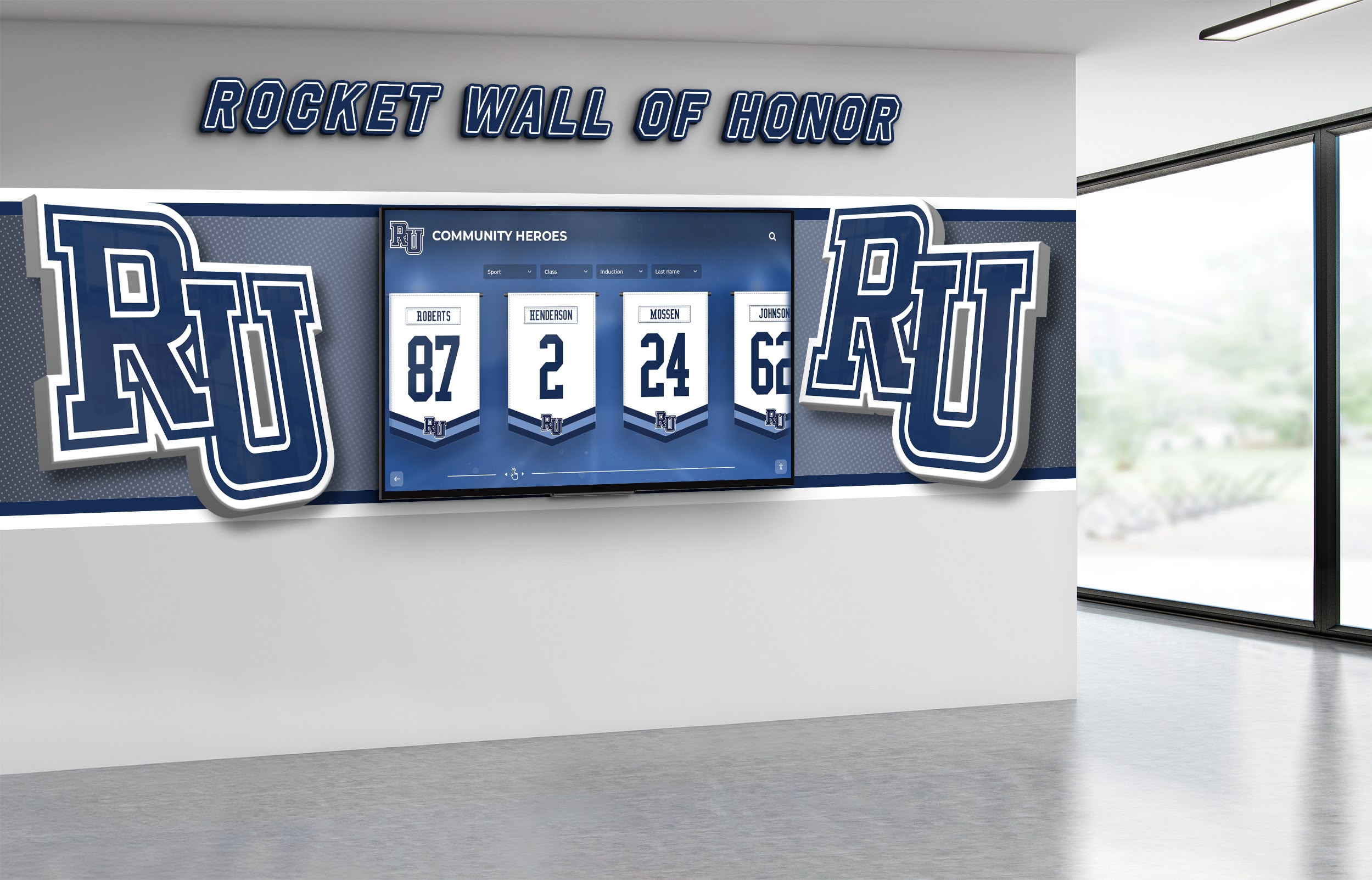Behind every successful athletic program stands a dedicated coach who shapes not just athletes, but character. Coaches invest countless hours beyond practice schedules, mentor students through challenges both on and off the field, and inspire excellence that extends far beyond sports. Yet these profound contributions often receive minimal recognition compared to the impact coaches deliver throughout their careers.
Creating meaningful coaches appreciation programs transforms how schools honor these essential mentors. While generic appreciation weeks and basic certificates acknowledge service, comprehensive recognition programs celebrate the full scope of coaching contributions, inspire current coaches through visible appreciation, attract quality coaching talent to programs, strengthen community connections between coaches and stakeholders, and preserve institutional athletic heritage for future generations.
This comprehensive guide explores the many dimensions of effective coaches appreciation, from understanding why recognition matters deeply in coaching professions through creative appreciation ideas, modern recognition approaches using digital technology, practical implementation strategies, and proven best practices for creating lasting tributes that genuinely honor the coaches who build champions and develop character.
Why Coaches Appreciation Matters in Athletic Programs
Recognition holds particular significance in coaching professions where financial compensation rarely reflects the true time investment and emotional commitment required for excellence.
The Unique Nature of Coaching Contributions
Coaches influence student development far beyond athletic skills. They teach discipline, resilience, teamwork, leadership, time management, goal setting, handling adversity, celebrating success gracefully, and countless life lessons that shape character and future success. Many alumni credit coaches as among the most influential adults in their development, often more impactful than classroom teachers in certain dimensions of personal growth.
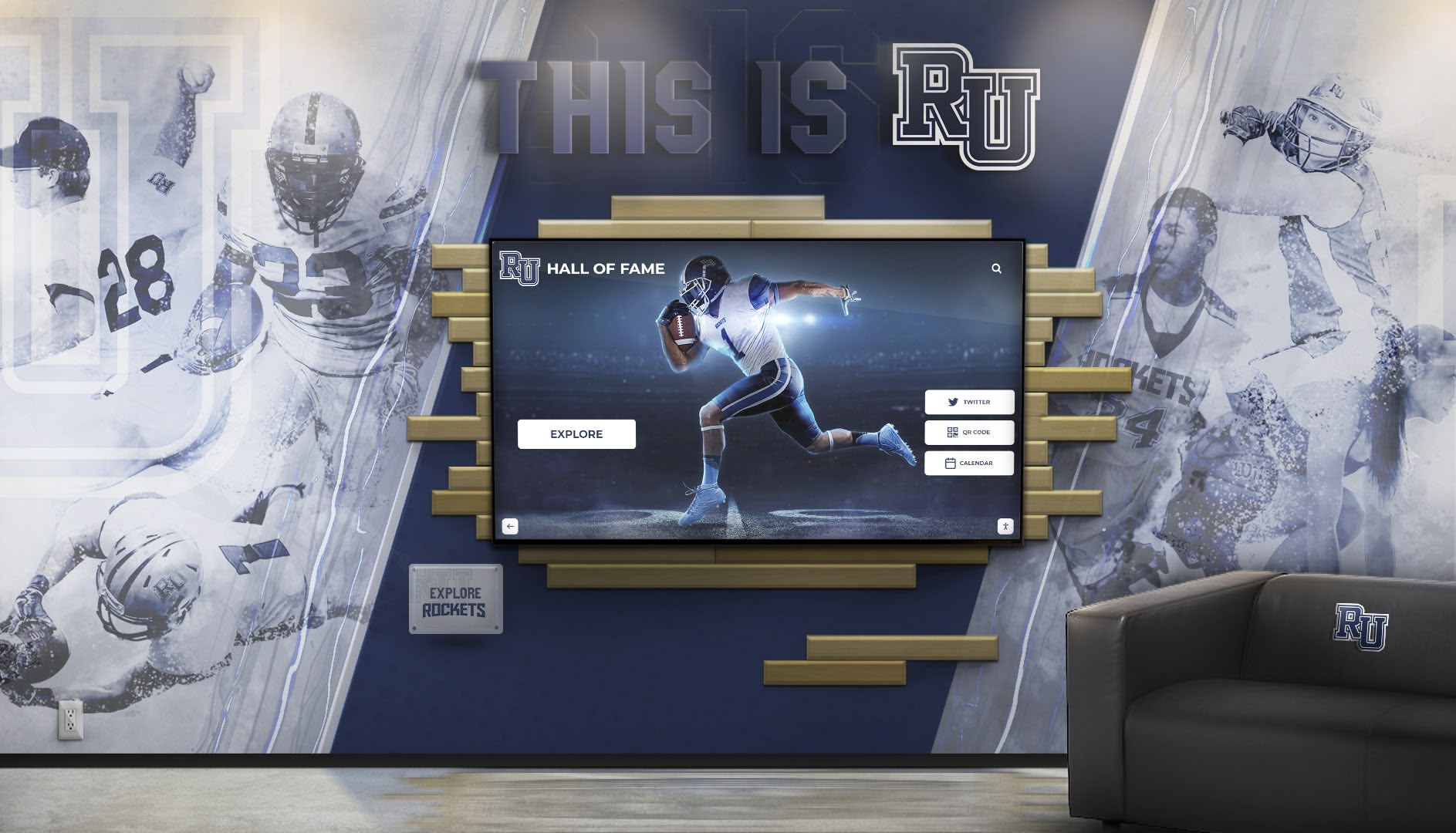
This profound influence deserves equally profound recognition. When schools invest in comprehensive coaches appreciation, they acknowledge that coaching represents genuine vocational calling rather than supplemental activity. The message resonates powerfully with current coaches while shaping how entire communities view and value athletic leadership.
Building Coaching Culture Through Recognition
Appreciation programs create positive feedback loops strengthening overall coaching culture. Visible recognition demonstrates institutional commitment to coaching excellence. Coaches see that dedication receives acknowledgment, validation, and celebration rather than being taken for granted as expected baseline effort. This validation combats burnout in demanding roles while reinforcing commitment to student development over mere win-loss records.
Recognition culture particularly benefits less visible coaching roles. Head coaches in flagship sports typically receive substantial attention, but assistant coaches, junior varsity coaches, and coaches in less prominent sports contribute equally to student development despite minimal recognition. Comprehensive appreciation programs ensure all coaching contributions receive appropriate celebration regardless of sport profile or competitive results.
Attracting and Retaining Quality Coaches
Schools compete for coaching talent, particularly in communities where multiple programs seek experienced, dedicated leaders. Recognition programs provide competitive advantages in recruitment and retention. Prospective coaches evaluate not just compensation but overall culture, and robust appreciation signals supportive environments where coaches feel valued.
Retention proves equally important. Experienced coaches build program continuity, institutional knowledge, and community relationships that benefit student-athletes profoundly. When veteran coaches see their contributions recognized meaningfully, they remain committed despite attractive opportunities elsewhere. The retention value delivers compounding benefits as coaching tenure deepens program quality year after year.
Creative Coaches Appreciation Ideas That Make Impact
Effective appreciation combines routine recognition with special celebrations acknowledging different dimensions of coaching contributions.
Year-Round Recognition Approaches
Appreciation should be woven throughout annual calendars rather than confined to single appreciation weeks. Regular recognition maintains awareness of coaching value while creating multiple touchpoints reinforcing appreciation messages.
Monthly Coach Spotlights
Feature different coaches monthly through school communications, social media, and recognition displays. Monthly spotlights ensure all coaches receive individual attention throughout years while providing consistent content celebrating athletic leadership. Spotlights might highlight coaching philosophy, career highlights, personal background, favorite memories, advice for young athletes, or connections between current work and alumni success.
Solutions like Rocket Alumni Solutions enable schools to showcase coach profiles through interactive digital displays that engage students, families, and visitors far more effectively than static bulletin boards.
Season Recognition Milestones
Acknowledge coaching achievements as they occur rather than waiting for end-of-year celebrations. Milestone wins, championship appearances, individual athlete achievements, team academic performance, and sportsmanship recognition all provide opportunities for timely appreciation connecting recognition directly to accomplishments while excitement remains high.
Community Engagement Features
Student athlete recognition programs naturally extend to highlight coaching influence. When schools celebrate student achievement, including coach mentorship in recognition narratives demonstrates how coaching relationships enable student success.
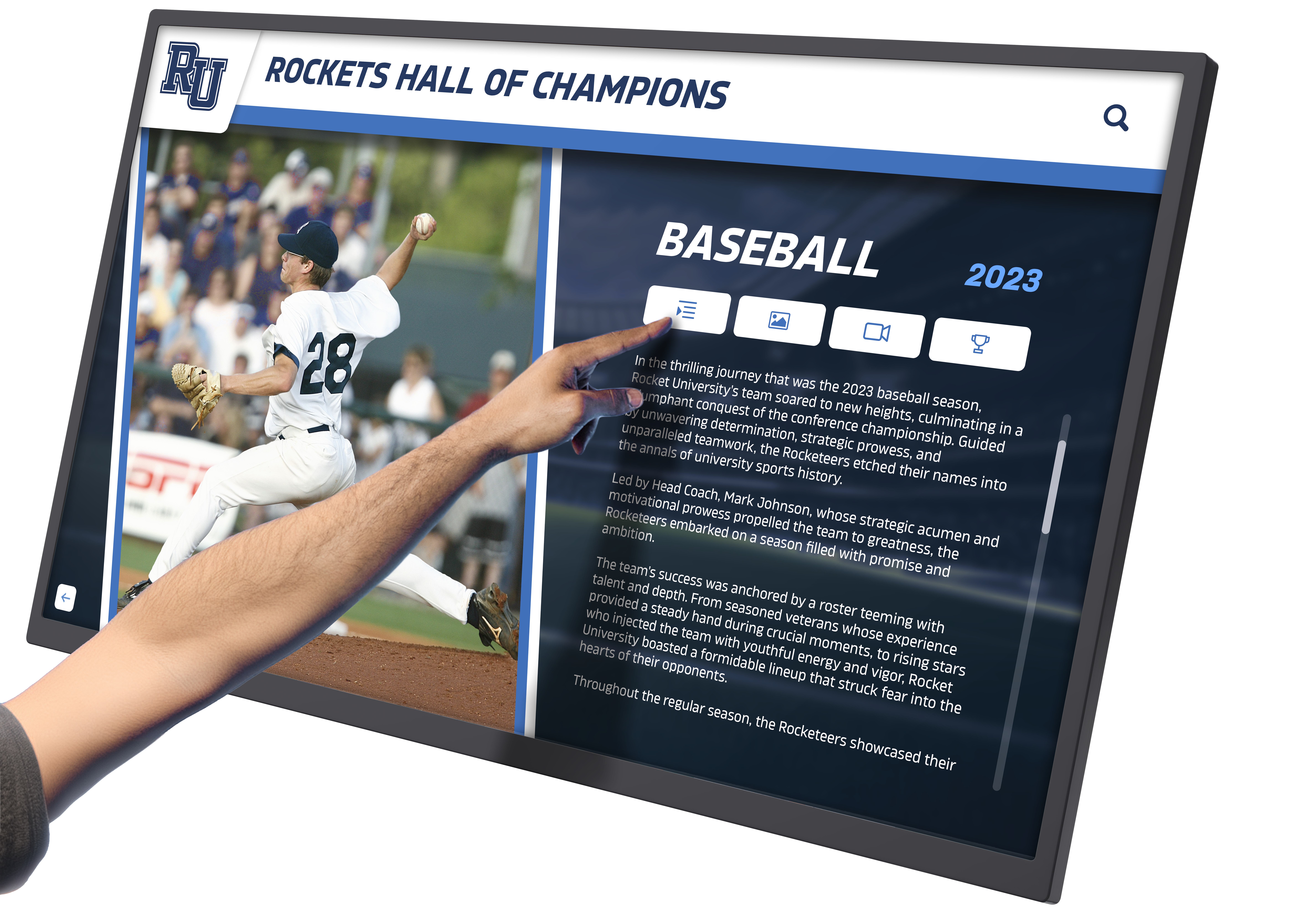
Special Appreciation Events and Ceremonies
While routine recognition maintains ongoing appreciation, special events create memorable celebrations honoring coaching contributions significantly.
Annual Coaches Appreciation Night
Dedicate specific evenings to celebrating coaching staff comprehensively. These events might include recognition presentations for each coach, video tributes featuring athlete and parent testimonials, community speakers discussing coaching impact, displays showcasing coaching achievements and program history, opportunities for athletes and families to thank coaches personally, and receptions facilitating community connection and appreciation.
Annual events become treasured traditions that entire communities anticipate, strengthening bonds between athletic programs and stakeholders while providing formal venues for expressing gratitude that daily routines rarely accommodate.
Milestone Achievement Celebrations
Significant coaching milestones deserve special recognition. Career wins benchmarks, years of service anniversaries, championship achievements, coach of the year honors, and retirement celebrations warrant dedicated events acknowledging extraordinary contributions. These celebrations often attract alumni returning specifically to honor coaches who influenced their development, creating powerful intergenerational connections.
End-of-Season Team Celebrations
Individual team celebrations provide opportunities for athlete-led appreciation expressing gratitude to coaches who guided their seasons. Student testimonials, team gifts representing appreciation collectively, photo slideshows documenting season memories, and informal gatherings strengthening coach-athlete relationships all contribute to appreciation while reinforcing team bonds. When athletes lead appreciation, sincerity and emotional impact often exceed anything adults organize independently.
Tangible Appreciation Expressions
Physical expressions of gratitude complement recognition events and ongoing programs, providing lasting reminders of community appreciation.
Personalized Appreciation Items
Thoughtful gifts demonstrate genuine appreciation far more effectively than generic tokens. Customized items might include engraved plaques or trophies commemorating specific achievements, personalized team gear reflecting coaches’ individual styles, professional photography capturing coaching moments, custom artwork from team members or student artists, books or resources supporting coaching development, or gift certificates to favorite local establishments recommended by those who know coaches personally.
The personalization proves more significant than monetary value. Thoughtful gifts selected based on individual coaches’ interests and personalities communicate genuine attention and care rather than obligatory gesture fulfillment.
Legacy Recognition Elements
Permanent recognition creates lasting tributes to coaching contributions. Recognition elements might include naming facilities or spaces after legendary coaches, installing plaques commemorating championship teams and milestone achievements, creating coaching “Hall of Fame” sections in athletic facilities, preserving historical coaching photographs and memorabilia, or developing online coaching archives accessible to alumni worldwide.
Digital recognition platforms enable comprehensive coaching tributes without physical space limitations. Schools can honor unlimited coaches with rich multimedia profiles including career highlights, coaching philosophy statements, athlete testimonials, historical photographs spanning careers, video interviews capturing wisdom and memories, and statistical achievements documenting program impact.
Traditional vs. Digital Coaches Recognition Displays
When planning permanent coaches appreciation displays, schools choose between traditional physical installations and modern digital solutions, each offering distinct advantages.
Traditional Physical Recognition
Physical plaques and trophy cases have honored coaches for generations, providing tangible permanence many find appealing.
Advantages of Physical Displays:
- Permanent installations requiring no ongoing technology maintenance
- Classic aesthetic conveying tradition and prestige
- Straightforward implementation without technical complexity
- No dependence on network connectivity or power systems
- Familiar approach aligned with long-established recognition traditions
Limitations to Consider:
- Fixed physical space eventually fills, limiting future recognition capacity
- Adding new honorees requires installation work and ongoing costs
- Static information cannot be updated without replacing physical elements
- Minimal information possible beyond names, years, and basic achievements
- No multimedia capabilities for videos, audio, or interactive content
- Impossible to reorganize or refresh without extensive physical work
- Limited visibility to anyone not physically present at installation location
Digital Recognition Displays
Digital recognition displays transform coaching appreciation through interactive technology offering capabilities traditional approaches cannot match.
Advantages of Digital Platforms:
- Unlimited digital space accommodating all deserving coaches without physical constraints
- Easy content updates through cloud-based management systems accessible remotely
- Rich multimedia profiles including photographs, videos, audio recordings, and documents
- Interactive search and browsing enabling visitors to explore coaching history
- Regular content refreshment maintaining engagement and contemporary relevance
- Professional, modern presentation appealing to tech-savvy students and families
- Online accessibility extending recognition beyond physical facility locations
- Analytics revealing which coaches and content generate most community interest
- Cost-effective expansion as programs grow without additional hardware investment
- Integration with social media amplifying recognition reach organically
Implementation Considerations:
- Initial investment in display hardware and software platform
- Requires reliable internet connectivity for content updates
- Designated staff needed for content management and platform administration
- Technical support helpful for troubleshooting and ongoing maintenance
- Content development requires photography, writing, and basic media skills
Digital recognition particularly benefits schools with extensive coaching histories, limited physical space for traditional displays, or desires to create engaging, contemporary recognition that resonates with modern audiences. The platforms enable storytelling depth impossible with physical plaques, bringing coaching contributions to life through athlete testimonials, career progression narratives, championship moment videos, and comprehensive achievement documentation.
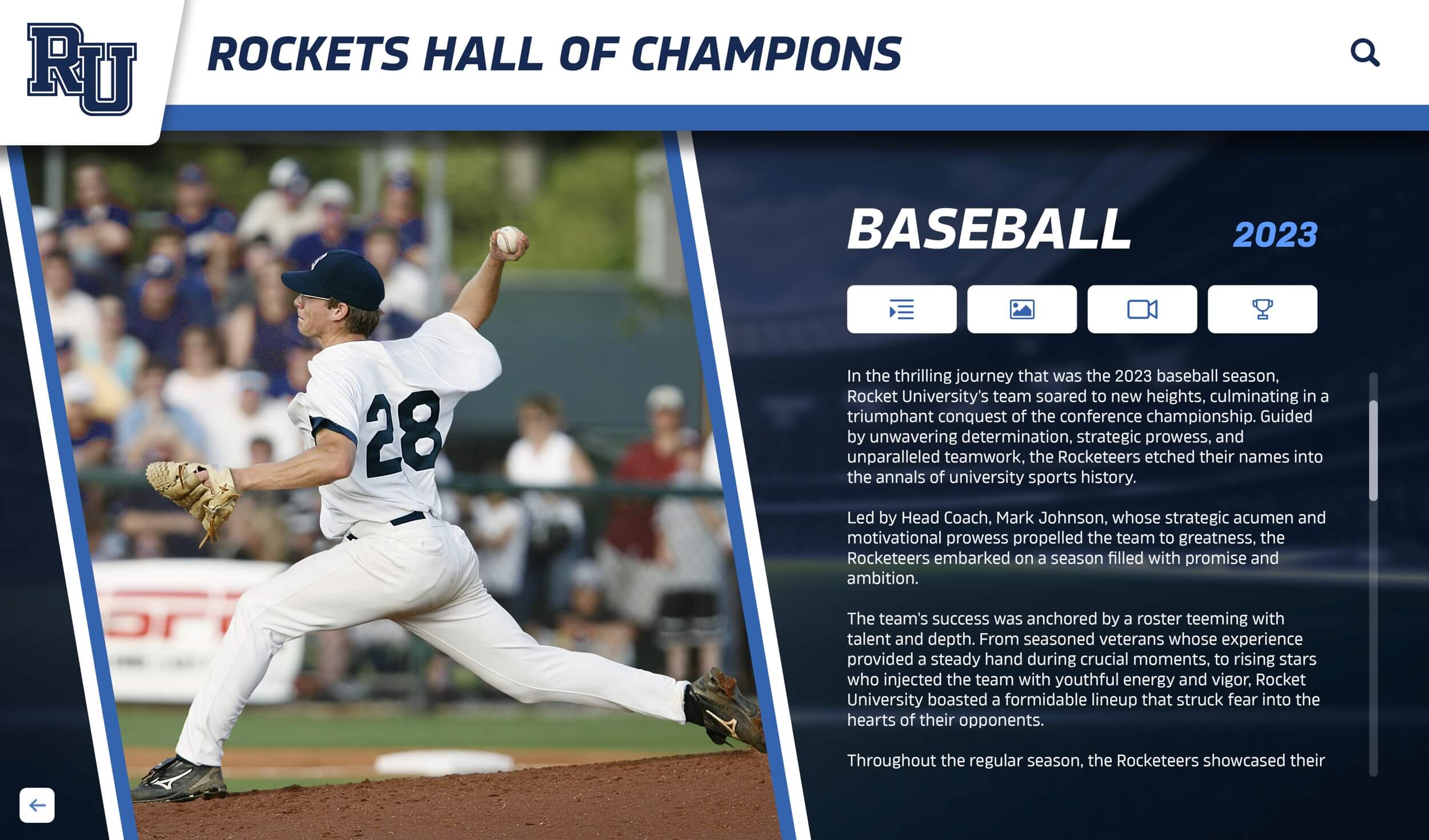
The Hybrid Approach
Many schools successfully combine traditional and digital elements, leveraging strengths of both approaches. A hybrid strategy might maintain traditional plaques for the most distinguished coaches in prominent physical locations while implementing digital displays providing comprehensive coverage of all coaching contributors with unlimited space and multimedia capabilities.
This balanced approach respects tradition while embracing technology’s advantages, offering multiple recognition touchpoints serving different audiences and purposes throughout athletic facilities and online platforms.
Implementing Comprehensive Coaches Appreciation Programs
Successfully launching meaningful coaches appreciation requires thoughtful planning addressing cultural, logistical, and technical dimensions.
Step 1: Establish Program Vision and Goals
Begin by clearly defining what your appreciation program should accomplish. Are you primarily focused on improving coaching morale and retention? Building community connections between coaches and stakeholders? Attracting coaching talent to programs? Engaging alumni through coaching connections? Preserving athletic program history? Your specific goals shape decisions about program structure, recognition criteria, and implementation approaches.
Gather input from diverse stakeholders including athletic directors, current coaches, athletes and parents, school administrators, alumni association representatives, and booster organizations. Their perspectives ensure your program resonates across constituencies while addressing authentic needs rather than imposing top-down solutions disconnected from community values.
Step 2: Define Recognition Categories and Criteria
Effective appreciation acknowledges diverse coaching contributions through multiple recognition pathways rather than single monolithic categories.
Recognition Category Options:
Coaching Excellence: Educators demonstrating sustained success developing student-athletes across multiple dimensions including competitive achievement, athlete development, program building, and values-based leadership.
Mentorship and Character Development: Coaches whose greatest impact extends beyond athletic performance to character formation, life skills development, and personal mentorship shaping student success long after athletic careers end.
Innovation and Program Development: Coaches who pioneer new approaches, develop innovative programs, integrate cutting-edge training methodologies, or elevate program quality through creative leadership.
Community Service and Engagement: Coaches extending influence beyond their teams through community partnerships, volunteer leadership, youth sports development, or service learning integrations.
Lifetime Achievement: Long-serving coaches who shaped generations of student-athletes through decades of dedicated service, building program traditions and institutional athletic heritage.
Alumni-Nominated Recognition: Allowing graduates to nominate coaches who profoundly influenced their lives adds meaningful alumni engagement while surfacing impact that current staff may not fully appreciate.
Multiple categories ensure recognition encompasses different coaching contributions, preventing dominance by single coach types or sports while celebrating diverse pathways to excellence.
Selection Criteria Development:
Establish transparent criteria including minimum tenure requirements, demonstrated coaching effectiveness metrics, contributions to athlete academic success and eligibility, leadership in extracurricular and community activities, positive impact on student character development and life skills, professional development and continuing education, collegiality and contributions to positive program culture, and community engagement and positive stakeholder relationships.
Document criteria clearly and make them publicly accessible through school communications, athletic program websites, and nomination materials. Transparency builds credibility while helping potential nominators understand what recognition celebrates.
Form diverse selection committees including athletic directors, coaching representatives across sports, current and former student-athletes, parent representatives, alumni association members, and school administrative leadership. Multiple perspectives ensure balanced evaluation and prevent bias toward particular coaching styles or sports.
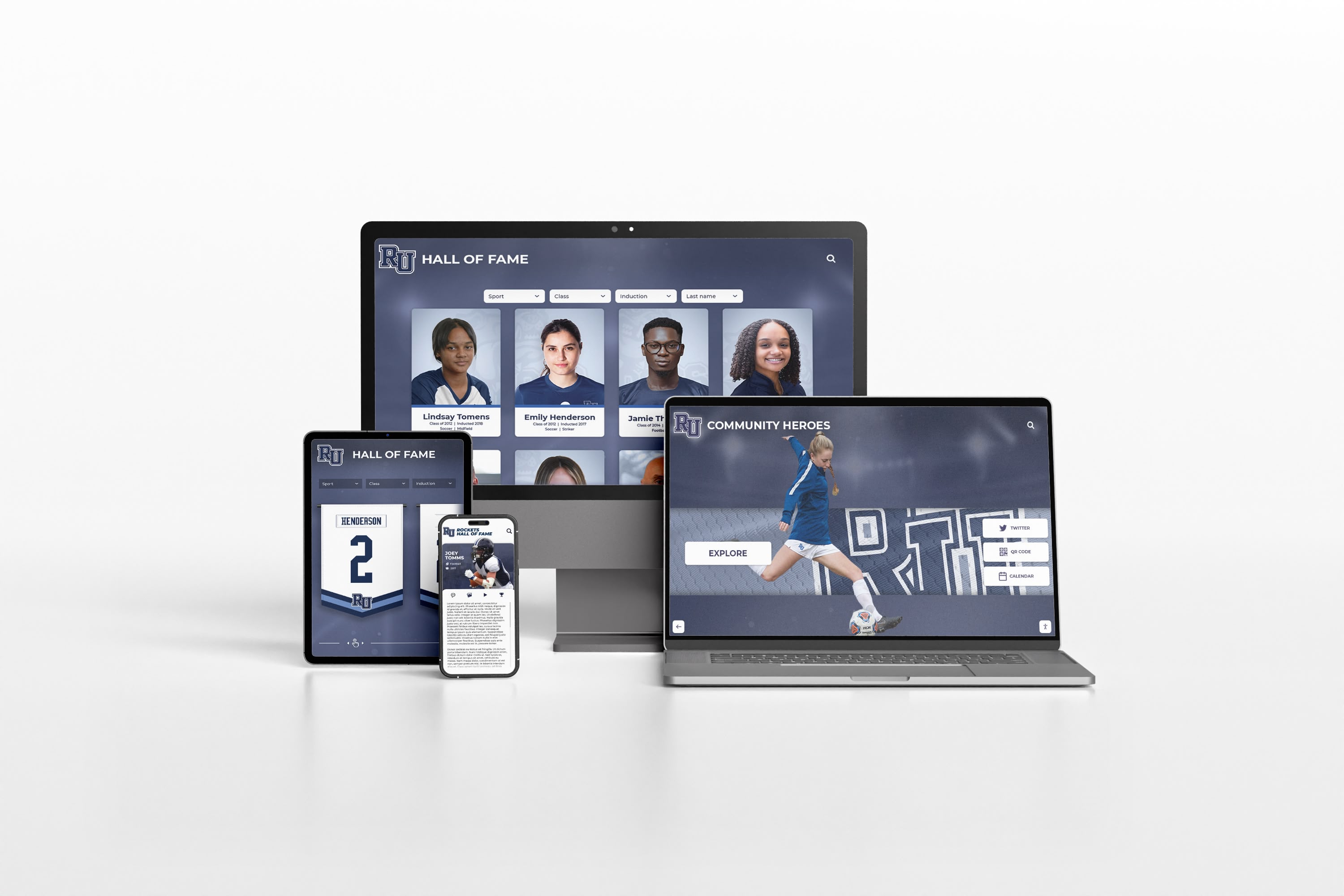
Step 3: Choose Recognition Display Approach
Decide whether traditional physical displays, digital platforms, or hybrid approaches best serve your program vision, budget, available space, technical capabilities, and appreciation goals.
For digital displays, research providers specializing in athletic recognition solutions. Purpose-built platforms like Rocket Alumni Solutions offer user-friendly content management designed specifically for schools, enabling staff to update content without technical expertise while providing engaging interactive experiences for students, athletes, families, and visitors.
Consider critical factors including display locations in high-traffic areas maximizing visibility, display size and format suitable for viewing distances and spaces, content management capabilities determining update ease and flexibility, multimedia support enabling rich storytelling through multiple media types, interactive features like search functions and browsing capabilities, and analytics providing insights into community engagement and popular content.
Step 4: Develop Compelling Content
Content quality determines whether appreciation programs genuinely honor coaches or become forgettable displays. Invest time creating rich, meaningful profiles for each honoree.
Essential Content Elements:
Coaching Biography: Professional background including education, certifications, coaching experience, and career progression demonstrating development and commitment to excellence.
Coaching Philosophy: Brief statements in coaches’ own words about their approach to athlete development, program values, and what motivates their dedication to student-athletes.
Career Highlights: Significant achievements including championships, coaching honors, milestone wins, athlete accomplishments, program innovations, and contributions to broader athletic community.
Athlete Testimonials: Quotes and stories from former student-athletes describing specific ways coaches influenced their athletic development, academic success, character formation, and life trajectories. Authentic athlete voices prove more powerful than any institutional narrative.
Community Impact: Recognition of service, volunteer leadership, youth sports development, community partnerships, and contributions extending beyond school athletic programs.
Multimedia Elements: High-quality photographs from various career stages, video interviews capturing coaching wisdom and personality, game footage or championship moments, audio recordings from speeches or historical archives, and scanned documents like awards, newspaper clippings, or historical materials.
Personal Touches: Appropriate personal information with permission including family, hobbies, interests beyond coaching, memorable coaching moments capturing character and influence, and connections to other honored coaches or institutional traditions.
Conduct interviews with honored coaches when possible to capture authentic voices, teaching philosophies, memorable experiences, and advice for current student-athletes. Gather photographs spanning careers showing coaching evolution. Collect testimonials from former athletes, colleagues, and community members. Write biographical narratives capturing personality and impact rather than dry factual recitation.
Step 5: Plan Memorable Unveiling and Induction Events
Honor new inductees through special ceremonies celebrating their contributions appropriately. These events become important traditions entire communities anticipate annually.
Effective induction ceremonies might include welcome remarks from school leadership framing program significance, individual presentations for each inductee highlighting specific contributions, video montages featuring photographs and testimonial clips, opportunities for inductees to address audiences and share coaching reflections, unveiling of recognition displays or profile additions, and receptions allowing athletes, families, colleagues, and community members to personally congratulate honorees.
Promote events widely maximizing attendance and ensuring honorees feel appropriately celebrated. Consider livestreaming or recording ceremonies for those unable to attend in person and for archival purposes preserving recognition moments permanently.
Step 6: Maintain Ongoing Engagement and Program Evolution
After launching coaches appreciation programs, ongoing promotion and evolution keep recognition relevant and impactful over time.
Feature coaches in athletic newsletters, school communications, and social media content. Incorporate recognition displays into facility tours for prospective families evaluating athletic programs. Encourage students to interview inducted coaches for class projects or journalism assignments. Host special events at display locations like meet-and-greets with newly inducted coaches. Regularly update digital content maintaining freshness and encouraging repeat visits.
Gather feedback from coaches, athletes, families, and community members about appreciation program impact and opportunities for enhancement. Use engagement analytics from digital platforms understanding which content resonates most powerfully. Refine recognition approaches based on learning and changing community preferences, ensuring programs remain dynamic rather than static traditions losing relevance over time.
Funding Coaches Appreciation Programs
Budget considerations affect all recognition programs, but multiple funding strategies make meaningful appreciation achievable across budget levels.
Potential Funding Sources
Athletic Booster Organizations: Booster clubs often enthusiastically support coach appreciation initiatives, viewing recognition as investment in program quality and coaching retention. Many boosters allocate fundraising proceeds toward recognition enhancements.
Alumni Association Contributions: Alumni groups frequently welcome opportunities to honor coaches who influenced their development. Alumni associations may provide significant financial support, particularly for recognition honoring specific coaching legends deeply connected to alumni experiences.
Memorial and Tribute Gifts: Allow families to make memorial contributions honoring deceased coaches or tribute gifts celebrating beloved active coaches. These donations fund specific profile additions or program elements while creating personal meaning for contributors.
Corporate Sponsorships: Local businesses may sponsor appreciation programs or specific recognition elements, particularly if businesses have alumni ownership or employees connected to athletic programs. Recognition displays can appropriately acknowledge sponsors without commercializing coaching tributes.
Dedicated Fundraising Campaigns: Launch specific campaigns for coaching appreciation, allowing community members to contribute specifically toward honoring athletic mentors. Targeted campaigns often generate strong response from stakeholders who value coaching but may not typically contribute to general athletic fundraising.
School Operating Budgets: Some schools allocate funds from general operating budgets for recognition programs, viewing them as strategic investments in coaching culture, retention, and program quality rather than discretionary expenses.
Grant Opportunities: Explore educational or athletic grants supporting recognition programs, coaching development, or school culture initiatives. Some foundations specifically fund appreciation and retention programs addressing educator and coaching shortages.
Cost Considerations and Budget Planning
Recognition costs vary significantly based on implementation approaches.
Traditional Physical Displays:
- Individual coaching plaques or nameplates ($150-$400 each)
- Wall-mounted display systems ($2,000-$8,000)
- Trophy cases and cabinet installations ($3,000-$15,000)
- Professional engraving and installation ($500-$2,000)
Digital Recognition Systems:
- Display hardware including screens, mounts, and media players ($3,000-$8,000 per display)
- Software licensing and content management platforms ($2,000-$10,000 annually)
- Professional content development including photography, writing, and video ($1,000-$5,000)
- Installation and technical setup ($1,000-$3,000)
- Ongoing content updates and technical support (staff time or contracted services)
While digital solutions may have higher initial costs, they often prove more cost-effective long-term due to unlimited recognition capacity without per-coach physical costs, easy updates without production expenses, professional presentation requiring no physical maintenance, and analytics demonstrating community engagement and program value supporting continued investment.
Many schools implement programs in phases, beginning with initial installations for most distinguished coaches and expanding recognition annually as budgets allow and programs demonstrate value. Digital systems particularly benefit from phased approaches since adding content requires only staff time without additional hardware investment.
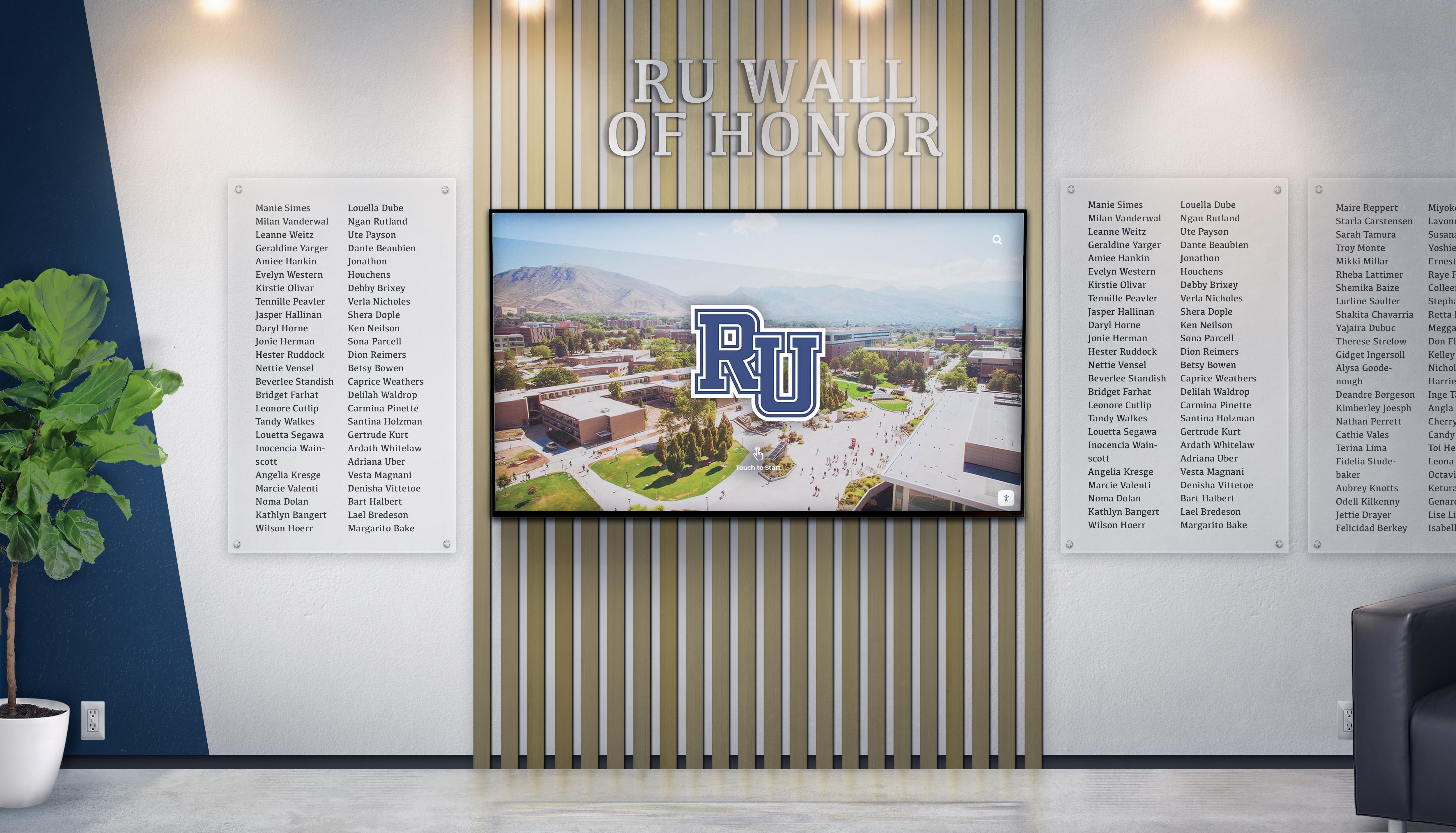
Best Practices for Effective Coaches Appreciation
Learning from successful programs helps schools avoid common pitfalls while maximizing appreciation impact.
Ensure Inclusivity Across All Coaching Roles
Recognition should ultimately honor coaches from all sports, competition levels, and program roles. Avoid programs dominated by head coaches in flagship sports while assistant coaches, JV coaches, and coaches in less prominent sports receive minimal recognition. Monitor selections over time ensuring diverse representation. Consider creating recognition categories acknowledging different contribution types if some coaching roles risk being overshadowed.
Make nomination processes accessible to all stakeholders—not just athletic directors or senior coaches—enabling athletes, parents, and community members to nominate worthy coaches regardless of sport visibility or competitive profile.
Tell Complete Coaching Stories
Effective profiles transcend achievement lists to share authentic coaching narratives revealing personality, philosophy, and impact. Include personal anecdotes capturing character and coaching approach. Share specific examples demonstrating influence on student-athlete development. Use multimedia elements creating engaging narratives. Let coaches’ own voices emerge through quotes and video testimonials. Connect coaching to broader athletic program values and institutional mission.
Complete stories help athletes, families, and community members understand coaches as real people whose dedication shapes student lives profoundly rather than abstract figures receiving ceremonial recognition.
Maintain Consistent Standards and Processes
Recognition programs succeed through consistency and fairness. Establish regular induction schedules and maintain them. Build processes not dependent on single individuals, ensuring program continuity through staff changes. Create comprehensive documentation of procedures, criteria, and responsibilities. Budget for ongoing program costs beyond initial implementation.
Consistency prevents recognition from appearing arbitrary or biased while building credibility that sustains program impact on coaching culture, motivation, and community engagement over time.
Integrate Recognition Throughout Athletic Culture
Coaches appreciation works most powerfully as component of comprehensive recognition culture rather than isolated initiative. Connect coaching recognition with related programs like student-athlete achievement celebrations, athletic record recognition, and championship commemorations. Use appreciation programs to elevate related recognition efforts showing connections to long-term program traditions and coaching influence.
Ensure regular, informal appreciation happens alongside formal recognition programs. Thank-you notes, social media shoutouts, public acknowledgments at events, and daily expressions of gratitude create cultures where formal recognition crowns ongoing appreciation rather than representing isolated ceremonial gestures.
Leverage Technology Thoughtfully
If choosing digital displays, maximize platform capabilities while maintaining accessibility. Implement intuitive navigation enabling visitors of all ages and technical abilities to explore content easily. Use high-quality multimedia loading quickly and displaying professionally. Enable search and filtering helping visitors find specific coaches or browse by sport, era, or achievement type. Ensure accessibility for visitors with disabilities following universal design principles. Keep interfaces clean and focused on honoring coaches rather than showcasing technology complexity.
Purpose-built recognition solutions designed specifically for educational athletics deliver features schools need while abstracting technical complexity, enabling non-technical staff to manage programs successfully without extensive training or ongoing technical support requirements.
Measuring Coaches Appreciation Program Impact
Once programs launch, assessment demonstrates value while identifying improvement opportunities ensuring continued effectiveness.
Quantitative Impact Metrics
Track measurable indicators including participation in induction ceremonies and appreciation events, engagement with digital displays measured through analytics, nomination submission rates indicating community participation, coaching retention rates before and after program implementation, prospective coach feedback during recruitment conversations, and alumni engagement with coaching recognition content online and during campus visits.
Qualitative Feedback and Stories
Numbers provide important data, but qualitative feedback reveals deeper program impact. Gather input through coach surveys about whether recognition affects their sense of being valued and motivated, athlete focus groups discussing what they learn from coaching recognition and how it influences their perspectives, parent feedback about how appreciation programs influence perceptions of athletic program quality, alumni testimonials about reconnecting with honored coaches and strengthening institutional bonds, and community member feedback about how recognition shapes perceptions of athletic program values and priorities.
Collect specific stories documenting instances where recognition influenced coaching decisions, athlete motivation, recruitment outcomes, alumni giving, or community support. These narratives provide compelling evidence of program value beyond quantitative metrics alone.
Continuous Program Improvement
Use assessment data and feedback to refine appreciation programs over time. Identify underrepresented coaching groups or sports receiving insufficient recognition. Test content variations determining which formats and media types generate strongest engagement. Experiment with appreciation event formats maximizing attendance and emotional impact. Gather coach input about desired recognition approaches and appreciation expressions they find most meaningful.
Regular assessment and responsive refinement keep programs dynamic and increasingly effective rather than static traditions losing relevance and impact as years pass and communities evolve.
Special Considerations for Different Athletic Program Types
While core appreciation principles apply broadly, different program contexts may benefit from customized approaches reflecting unique cultures and priorities.
High School Athletic Programs
High school coaches often juggle teaching responsibilities with coaching, creating particular time pressures and compensation challenges. Recognition becomes especially important as non-monetary validation of demanding commitments.
Consider emphasizing coaches’ dual roles as educators and mentors, highlighting influence on college recruitment and athlete placement success, recognizing coaches who build youth sports connections and community partnerships, celebrating coaches who maintain high academic performance standards alongside athletic achievement, and honoring longevity creating multi-generational coaching legacies within communities.
College and University Athletics
Higher education coaches often receive more public visibility and professional compensation, but recognition remains meaningful particularly for coaches in non-revenue sports receiving minimal attention despite profound student-athlete influence.
Recognition might emphasize coaches’ contributions to institutional prestige and national visibility, professional achievements and honors reflecting on university reputation, athlete professional placement and career success post-graduation, academic integrity and graduation rate excellence, and coaching innovations advancing broader athletic community knowledge and practices.
Youth and Community Sports Programs
Volunteer coaches in youth and community sports typically receive even less recognition despite time commitments comparable to school coaches. Recognition programs prove particularly impactful in these contexts where coaches receive virtually no compensation beyond intrinsic satisfaction.
Focus appreciation on volunteer service and community contribution, positive youth development and character formation, creating inclusive environments welcoming all skill levels, developing athlete passion and lifelong sports participation, and building community connections through athletic mentorship and leadership.
Club and Travel Sports Organizations
Club sports coaches often operate in competitive environments where recognition can differentiate programs attracting quality coaching talent and committed athlete families.
Recognition might highlight competitive success and athlete advancement to higher levels, coaching professionalism and credential development, positive parent and athlete relationships reflecting program culture, innovation in training, development, and competitive strategies, and contributions to broader sport development through coaching education and community leadership.
Looking Forward: The Future of Coaches Appreciation
Coaching appreciation continues evolving as technology capabilities expand and community expectations change.
Enhanced Digital Recognition Capabilities
Emerging technologies promise richer, more engaging coaching appreciation experiences. Artificial intelligence may enable automated content recommendations connecting visitors to coaching profiles matching their interests, smart search understanding natural language queries beyond keyword matching, intelligent content organization categorizing coaching contributions automatically, and predictive recognition identifying coaches approaching milestones or anniversaries deserving special acknowledgment.
Augmented reality could overlay digital content onto physical spaces through smartphone apps, virtual reality might create immersive coaching legacy experiences accessible remotely, and advanced analytics could reveal deeper insights into community engagement patterns informing content strategies.
Integration with Broader Athletic Platforms
Coaching recognition will increasingly integrate with comprehensive athletic program platforms connecting recognition with athlete performance tracking, team management systems, communication platforms, fundraising initiatives, and alumni engagement networks creating seamless experiences rather than siloed systems.
Emphasis on Continuous Recognition
Programs will likely evolve from periodic formal recognition toward continuous appreciation cultures where coaching contributions receive regular acknowledgment through multiple channels and formats. Technology enables sustainable ongoing recognition previously impossible with manual physical display approaches.
Honoring the Coaches Who Build Champions and Character
Coaches dedicate countless hours and emotional energy to developing student-athletes, often with minimal recognition compared to the profound influence they deliver. Comprehensive appreciation programs transform how schools honor these essential mentors, creating visible celebrations that validate coaching contributions, inspire current coaches through genuine appreciation, attract quality coaching talent to programs, strengthen community connections, and preserve athletic heritage.
Whether implementing traditional physical recognition, modern digital displays, or hybrid approaches combining both, the heart of effective programs remains the same: genuine gratitude for coaches who build not just athletic skills but character, resilience, leadership, and life preparation extending far beyond sports.
Ready to transform how your school celebrates coaching excellence? Explore how solutions like Rocket Alumni Solutions provide comprehensive platforms designed specifically for athletic recognition, combining intuitive content management with engaging interactive experiences that honor coaches appropriately while building stronger community connections around athletic programs.
The coaches who shape champions and develop character deserve recognition reflecting the magnitude of their contributions. Thoughtful appreciation programs ensure their dedication remains visible, celebrated, and honored for generations of student-athletes who benefit from their mentorship and leadership.
